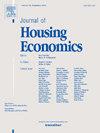房屋市场的重新上市、代理转换和销售结果
IF 2.4
3区 经济学
Q3 ECONOMICS
引用次数: 0
摘要
单户住宅并不总是在其最初的上市合同期间出售。这项研究调查了重新上市房屋(无论是通过同一家还是不同的代理商)如何影响交易价格和营销持续时间,使用了2000年至2019年的67万多笔销售,其中包括近4.5万笔重新上市。我们发现,结果受住房市场阶段、上市之间的场外差距和重新上市类型(过期vs取消)的影响。在高峰阶段(2005年5月至2006年3月)重新上市会产生积极的价格效应,而其他时期则表现出很大的折扣。短期的市场外缺口(0-7天)导致更长的总营销周期,这表明市场对表面重置持怀疑态度。相比之下,较长的间隔(31-180天)缩短了总营销时间,这与新买家群体或家庭装修一致。与之前的研究结果相比,到期后的代表性变化会产生适度的价格上涨。总体而言,重新上市不应被视为一种统一的失败信号,而应被视为一种受时机和上市历史影响的战略行动。本文章由计算机程序翻译,如有差异,请以英文原文为准。
Relisting, agent switching, and sale outcomes in the housing market
Single-family homes do not always sell during their initial listing contract. This study investigates how relisting a home–whether with the same or a different agent–affects transaction prices and marketing durations, using over 670,000 sales from 2000 to 2019, including nearly 45,000 relistings. We find that outcomes are shaped by the housing market phase, off-market gap between listings, and relisting type (expired vs. canceled). Relistings during the Peak phase (May 2005–March 2006) yield positive price effects, while other periods exhibit largely discounts. Short off-market gaps (0–7 days) lead to longer total marketing periods, suggesting market skepticism of superficial resets. In contrast, longer gaps (31–180 days) reduce total marketing durations, consistent with a new buyer pool or home renovations. Representation changes following expirations generate modest price gains, contrasting prior findings. Overall, relisting should not be viewed as a uniform signal of failure but as a strategic action shaped by timing and listing history.
求助全文
通过发布文献求助,成功后即可免费获取论文全文。
去求助
来源期刊

Journal of Housing Economics
Multiple-
CiteScore
3.30
自引率
4.20%
发文量
35
期刊介绍:
The Journal of Housing Economics provides a focal point for the publication of economic research related to housing and encourages papers that bring to bear careful analytical technique on important housing-related questions. The journal covers the broad spectrum of topics and approaches that constitute housing economics, including analysis of important public policy issues.
 求助内容:
求助内容: 应助结果提醒方式:
应助结果提醒方式:


